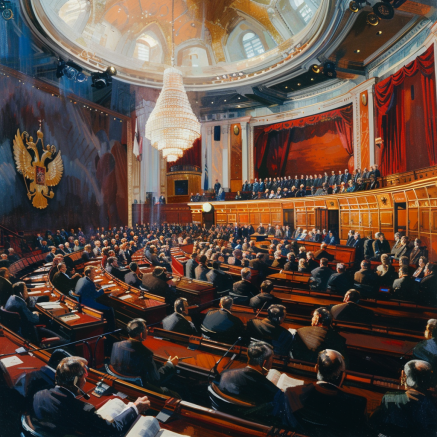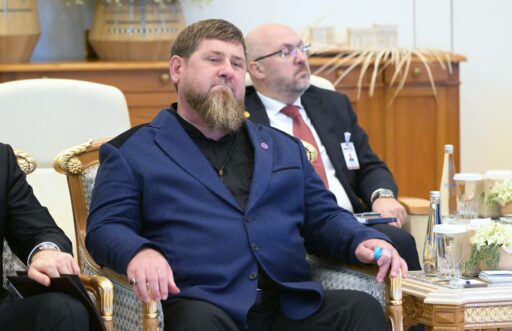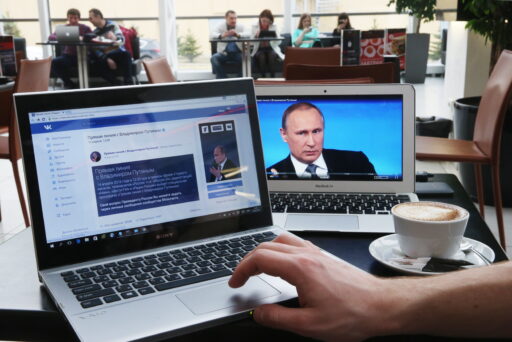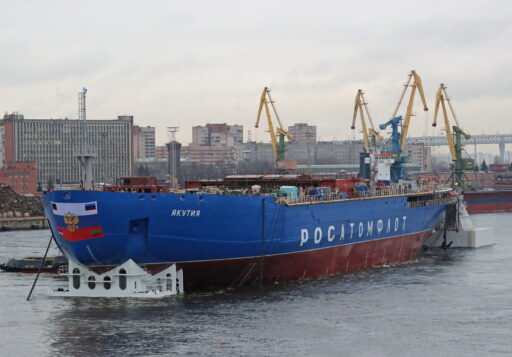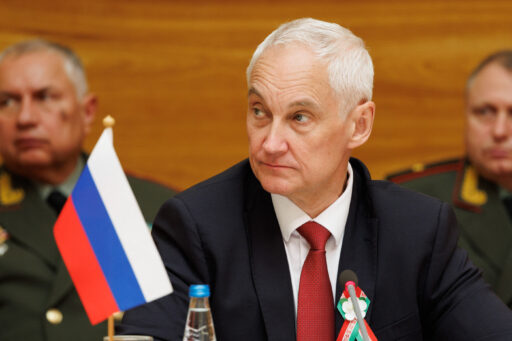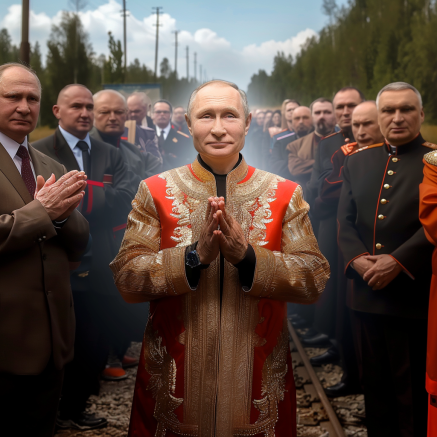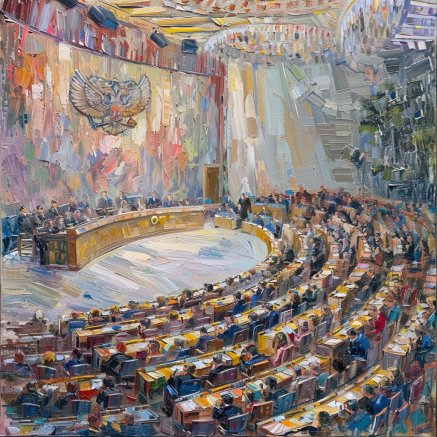Last week, Irina Podnosova was appointed head of the Supreme Court, the Chief Justice of Russia. Until a few months ago, Podnosova’s name was relatively well known only within the legal community but not to the politicised public. For four years, Podnosova was deputy to the late head of the Supreme Court, Vyacheslav Lebedev, and in 2013 she was deputy head of the Leningrad Regional Court. Over the past decade, Irina Podnosova’s career has literally taken off: perhaps because of her professionalism, but more likely because of her personal connections. Podnosova studied at the same university and in the same class as Vladimir Putin. It is in this context that her appointment is most often discussed. Within Russia’s power hierarchy the position of the head of the Supreme Court is quite high. This is to say, Podnosova has become Russia’s highest judge. The previous chairman — Vyacheslav Lebedev — became the head of the Supreme Court back in Soviet times, or more precisely, he was the last head of the Supreme Court of the RSFSR and served in this position until his death. If we take into account that the Russian court has in fact become part of a heterogeneous corporation of siloviki with its many internal conflicts, then the chief Justice of Russia should be viewed as one of the most prominent members of this corporation. Rumours of Lebedev’s retirement have been circulating for several years, mainly because of his age and poor health. Observers usually named prominent figures within the power vertical as Lebedev’s possible successors. For instance, the former president and prime minister and current deputy chairman of the Security Council Dmitry Medvedev, or head of the Investigative Committee Alexander Bastrykin. Both have long been close to Putin, and their weight within the vertical also says a lot about the weight of the position of the Chairperson of the Supreme Court. Medvedev would not have been embarassed to accept such a job, on the contrary, such an appointment would have been quite an honor.
In the end, however, the job went to Putin’s classmate. Judging by her earlier career, Podnosova was not a personal friend of Putin. For years, she worked in secondary and tertiary positions while the construction of power vertical was still underway. She was not promoted and pulled to the top but she was not sunk either. Her current appointment as head of the Supreme Court says a lot about the state of the power vertical and the trajectories of mobility within it. Because of the war, or because of his habits, Putin is now extremely reluctant to reshuffle his cadres. It is clear that the decision regarding the potential appointment of either Medvedev or Bastrykin as the Chief Justice of Russia was solely in Putin’s hands. And Putin decided against these appointments, even though both Dmitry Medvedev and Alexander Bastrykin would have been honoured and comfortable in this position for various reasons. There are different reasons for keeping the Deputy Chairman of the Security Council and the Head of the Investigation Committee in their posts. It is likely that Putin still has certain plans for Dmitry Medvedev and his further career. The president also has views on who will be in charge of the Investigative Committee: Alexander Bastrykin is an old man and his replacement is not far off. Had Lebedev lived longer, it is likely that Medvedev or Bastrykin would have taken his place, but in history, there are no givens.
Reality has forced Russia’s top leadership to make an important decision, and it has been made in a clearly consensual manner. It is likely that during consultations with the president on a new candidate for the post of head of the Supreme Court, members of the Russian president’s inner circle suggested the candidacy of his former classmate. The top of the vertical demonstrated their utmost loyalty to Putin and promoted someone who was somehow personally familiar to the president.
Putin has long enjoyed such obsequiousness and eagerness to please. «Podnosova factor» should be taken into account in future appointments, especially when it comes to filling vacancies created by natural causes: the death or illness of the incumbent. There are many such figures in the power vertical: the top bureaucracy and the leadership of other branches of the Russian government are not getting any younger. While Putin is mentally rehearsing future staffing combinations of personalities that he (and we) know well, reality is forcing him to recalibrate and adjust these plans. We should expect that the president’s inner circle will continue to get out of their way to please him and offer some of Putin’s acquaintances, even distant ones, as candidates for important positions. At some point it may turn out that high positions in the state will be filled by people who are quite random in the vertical, who are not connected with influential groups or even with Putin himself: there is no telling what a random, half-forgotten acquaintance will mean for the system. Podnosova’s case is a paradoxical case of favouritism, where the favourite is not chosen by the ruler himself, but by his inner circle, who is trying to please the ruler. It cannot be ruled out that in a moment of crisis for the vertical, random people at the top will stop serving it and start playing their own games.
Party cannibalism
Two systemic parliamentary parties — the LDPR and the «New People» party — are currently merging with smaller players on the systemic political market: businessman Konstantin Babkin’s «Party of Business» and business ombudsman Boris Titov’s «Party of Growth». The «Party of Business» is claimed by the Liberal Democrats, while the «Party of Growth» is claimed by the «New People». The merger of the «New People and Titov’s «Party of Growth» is a fait accompli: the decision will be taken at the party congress at the end of April. The situation with the merger of the LDPR and the «Party of Business» is somewhat more complicated: the Ministry of Justice wants to suspend their registration, so it may turn out that the Liberal Democrats will have nothing to merge with.
The reasons for the takeovers at the party level are clear. The LDPR is losing voters and wants to somehow increase their support base at the expense of a small party that has some assets in some Russian regions. The «New People» party clearly wants to become the country’s third or even second most popular party in the 2026 Duma elections. The 0.5 per cent that the «Party of Business» received in the last parliamentary elections may well play a decisive role in this race. Currently, the gap between the systemic parties in terms of ratings is minimal. All the more so because the «Party of Growth» has quite active branches led by well-known and high-profile politicians: for example, the St Petersburg cell is led by MP Oksana Dmitrieva. The cannibalisation of small party structures is yet another indication of the crisis in the systemic opposition market in Russia. The biggest players are fighting not for power, not even for influence, but for the purely formal status of the ‘second’ or ‘third’ most popular party with a lead of a tenth of a per cent. It is clear that neither the «Party of Growth» nor the «Party of Business» enjoy any significant support across the country. But even attracting tens of thousands of supporters and generating news about party mergers plays an important role in this micro-fight. The logic of this cannibalism will continue to drive the party processes within Russian systemic politics. Most likely, the more popular systemic parties supported by 1−2% of the voters – the Party of Pensioners, «Rodina», the Greens, the «Green Alternative» and various communist spoilers — will be disposed of in this way. Next it will be «A Just Russia”s turn, and then the LDPR, CPRF and the «New People», which are still afloat, may be subject to mergers and acquisitions.
